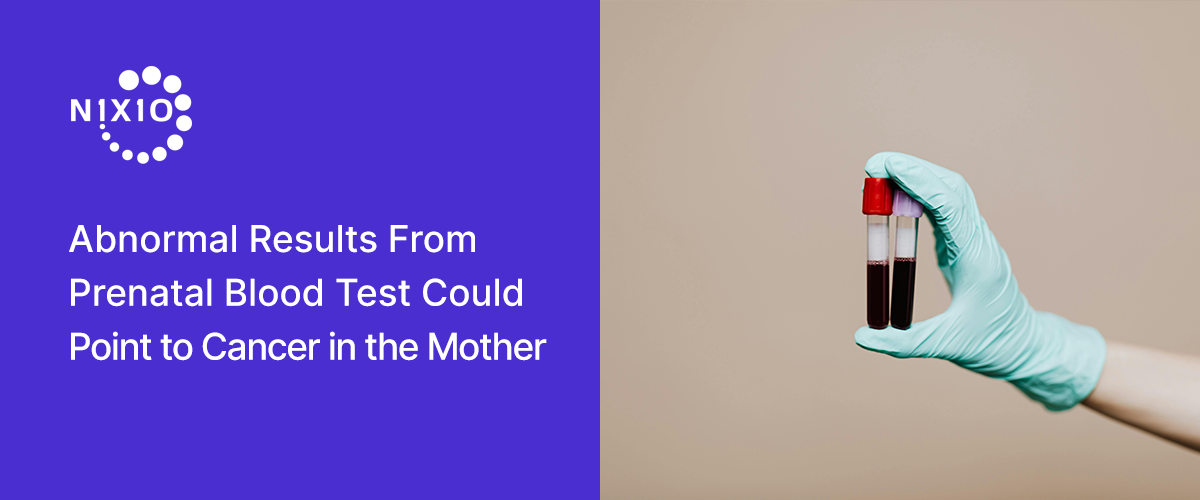Around 2 million pregnant women in the United States undergo noninvasive prenatal testing (NIPT) every year to screen their fetuses for chromosomal disorders such as Down syndrome. This screening test, which became commercially available in 2011 and has been recommended for use by all pregnant women since 2020, analyzes circulating cell-free DNA (cfDNA) from the placenta (which is used as a proxy for the fetus) that have been shed into the mother’s bloodstream. But because the mother’s blood also contains fragments of DNA shed from her own cells, the test may also pick up abnormal changes in maternal DNA. cfDNA sequencing has resulted in a 50 to 70% reduction in invasive diagnostic procedures, such as amniocentesis. Not long after NIPT became commercially available, rare reports began to emerge of unusual findings that were caused by DNA fragments from an undiagnosed cancer in the mother.
The results of a study (1,2), of 107 women who were pregnant with a normally developing fetus or had recently given birth and who had received abnormal or inconclusive NIPT results, with fetal testing failing to provide an explanation for these results. 48.6% of the women in the study turned out to have cancer. Most of these cancers were only detected through whole-body magnetic resonance imaging (MRI), which is not yet routinely used to follow up on abnormal NIPT results. In contrast, standard diagnostic tests, such as physical exams and blood work, missed many of the cancers. “These cancers tend to be truly hidden,” said co-lead investigator Amy Turriff, M.S., of the National Human Genome Research Institute. “Our study found that whole-body imaging is critical to sufficiently evaluate women who receive these [abnormal] results for cancer.”
In the 52 women who were found to have cancer, the most common types included lymphoma (31), colorectal cancer (9), and breast cancer (4). Other cancer types included lung, pancreatic, and kidney cancers. Of the 52 women, 9 were asymptomatic, 13 had symptoms they thought were related to their pregnancy or to another cause, and 10 had not recognized their symptoms or had tests that reassured them they did not have cancer. Most of the women diagnosed with lymphoma had early-stage disease. Those with solid cancers generally had more advanced disease, but most were still eligible for potentially curative treatment. Whole-body MRI was used for follow-up testing of 101 of the participants. It detected possible cancer in 48 women, all of whom were confirmed to have cancer. Six women received a false-positive result from the MRI and were later found to have benign lesions. Only 9 of the 52 women diagnosed with cancer had abnormal results from their physical examination. Routine blood tests did not suggest cancer in any of the participants. Tests for tumor markers were abnormal for 34 of the 52 women diagnosed with cancer, but these tests also flagged 14 women who did not have cancer.
Padma Sheila Rajagopal, M.D., M.P.H., of NCI’s Center for Cancer Research, one of the study’s investigators said that it is reassuring to see that many of the cancers were detected while they were still treatable. “That’s critical,” she added. But she noted that time is of the essence: “These patients need to be referred to an oncologist even during pregnancy.”
The results of the study support the use of whole-body MRI in the evaluation of pregnant persons who receive prenatal cfDNA-sequencing results suggestive of cancer. At the same time, laboratories that perform cfDNA screening should alert clinicians if there are genomic aberrations suggestive of maternal cancer and should develop guidelines to determine whether such aberrations should be reported along with an acknowledgment that false positive and false negative results can occur.


